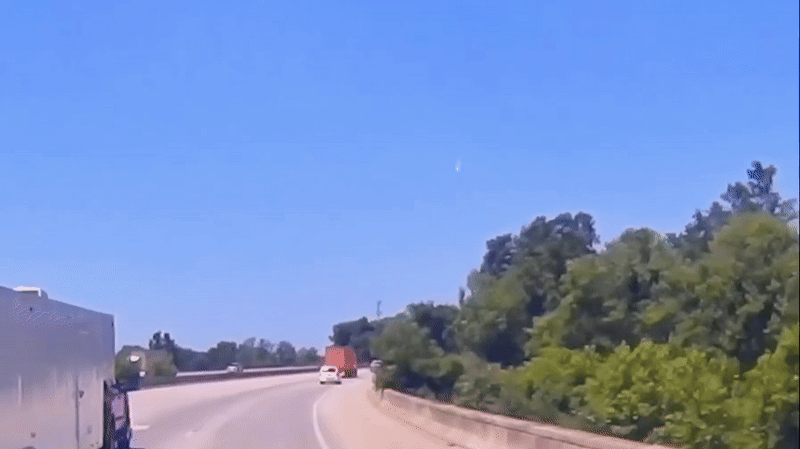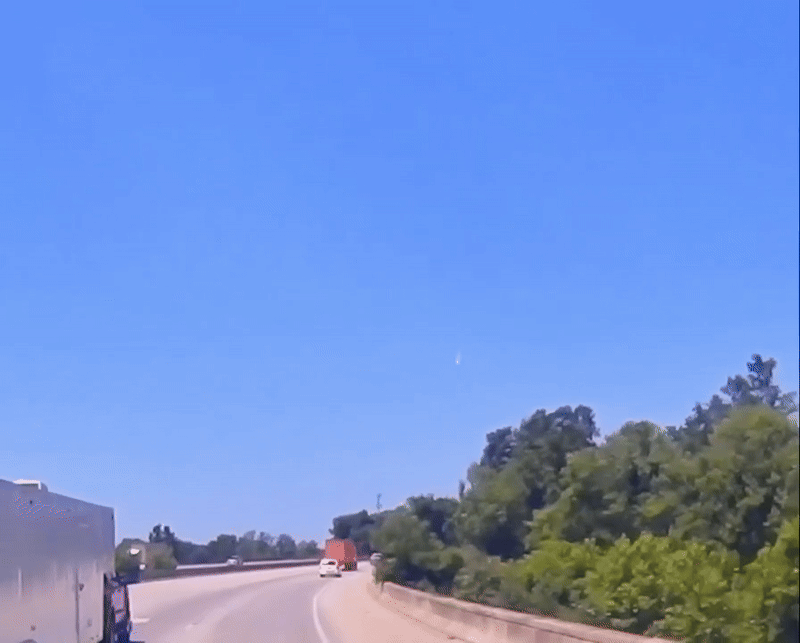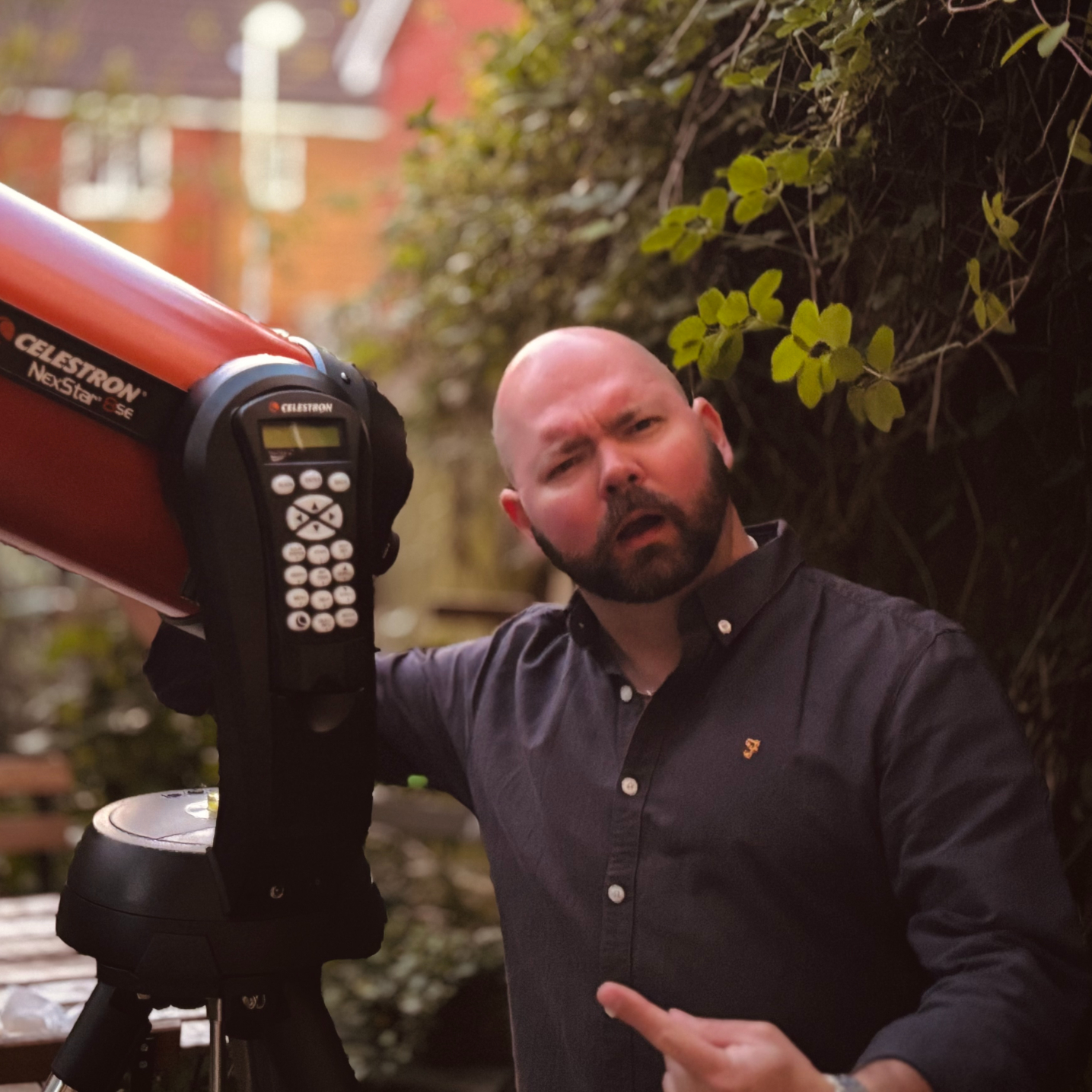Rare daytime fireball bright enough to be seen from orbit may have punched a hole in a house in Georgia
The fireball was bright enough to be spotted by a lightning-tracking satellite from orbit.

Breaking space news, the latest updates on rocket launches, skywatching events and more!
You are now subscribed
Your newsletter sign-up was successful
Want to add more newsletters?

Delivered daily
Daily Newsletter
Breaking space news, the latest updates on rocket launches, skywatching events and more!

Once a month
Watch This Space
Sign up to our monthly entertainment newsletter to keep up with all our coverage of the latest sci-fi and space movies, tv shows, games and books.

Once a week
Night Sky This Week
Discover this week's must-see night sky events, moon phases, and stunning astrophotos. Sign up for our skywatching newsletter and explore the universe with us!

Twice a month
Strange New Words
Space.com's Sci-Fi Reader's Club. Read a sci-fi short story every month and join a virtual community of fellow science fiction fans!
A large meteor that triggered a spectacular daytime fireball over the southeastern U.S. may have survived its dramatic passage through Earth's atmosphere to punch through the roof of a Georgia home.
A fireball, or a bright meteorite, was seen across the southeastern United States on Thursday and later exploded over Georgia, creating booms heard by residents in the area, according to NASA.The American Meteor Society said it received more than 160 reports of a fireball… pic.twitter.com/c7yBQjAQanJune 27, 2025
The fireball was spotted over the southeastern U.S. at 12:25 EDT on Friday, (1625 GMT), visibly flaring as the extreme heat of atmospheric friction overwhelmed the ancient chunk of solar system debris. Its descent was bright enough to be seen by the National Oceanic and Atmospheric Administration's (NOAAs) GOES-19 Earth observation satellite, using an instrument designed to map flashes of lightning from orbit.
There have been many reports of a #fireball streaking across the southeastern U.S. this afternoon! The Geostationary Lightning Mapper (#GLM) on @NOAA's #GOES satellites can occasionally detect these bright meteors (aka #bolides) when they pass through the atmosphere. See the… pic.twitter.com/SeODhBdYiKJune 26, 2025
"Daylight fireballs are rare in that it takes a large object (larger than a beachball compared to your normal pea-sized meteor) to be bright enough to be seen during the day," said Robert Lunsford of the American Meteor Society in an email to Space.com. "We probably only average one per month worldwide, so perhaps one out of every 3,000 reports occurs during the day."
The meteor was first spotted 48 miles (77 kilometers) above the town of Oxford, Georgia travelling at around 30,000 mph (48,000 km/h), according to NASA Meteoroid Environment Office lead Bill Cooke, via CBS News. Lunsford noted that the fireball may have been associated with the daylight beta Taurid shower, which peaks in late June as Earth passes through the trail of cosmic debris shed by the ancient solar system comet 2P/Encke.
"...the photograph of the hole in the roof is probably associated with this fireball."
Footage of the event led many to speculate that fragments of the meteor may have survived its bruising passage through Earth's atmosphere. The hours that followed saw photos circulate online purporting to show the damage that a fragment of the meteorite caused when it smashed through the roof of a home in Henry County, Georgia.

"Being much larger than your average meteor also means that it has a better chance of producing fragments on the ground," explained Lunsford "We look for reports of sound such as thunder or sonic booms to have confidence that fragments of the original fireball survived down to the lower atmosphere and perhaps all the way to the ground. Therefore the photograph of the hole in the roof is probably associated with this fireball."
Here's the hole an apparent meteorite made in one Henry County home, and what landed on floor. We're covering this story live on Channel 2. pic.twitter.com/eBc6GtrvEkJune 26, 2025
If verified, the Georgia meteorite certainly wouldn't represent the first time that a daylight beta Daylight Taurid left a mark on our planet. Lunsford noted that a particularly large meteor that some scientists believe to be associated with the annual shower detonated in a powerful airburst 6 miles (9.6 kilometers) over Russian Siberia in June 1908. The force of the explosion sparked massive forest fires and flattened roughly 80 million trees in what has since become known as the 'Tunguska Event'.
Breaking space news, the latest updates on rocket launches, skywatching events and more!
Editor's Note: If you capture a photo or video footage of a meteor and want to share it with Space.com's readers, then please send it, along with your name, comments, and details of your experience to spacephotos@space.com.

Anthony Wood joined Space.com in April 2025 after contributing articles to outlets including IGN, New Atlas and Gizmodo. He has a passion for the night sky, science, Hideo Kojima, and human space exploration, and can’t wait for the day when astronauts once again set foot on the moon.
You must confirm your public display name before commenting
Please logout and then login again, you will then be prompted to enter your display name.
